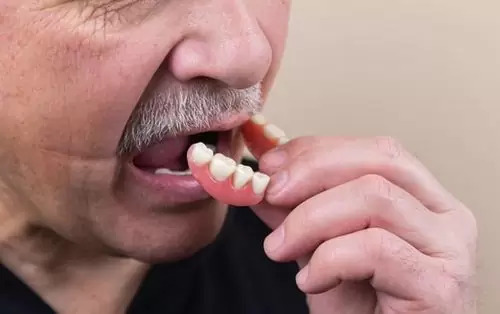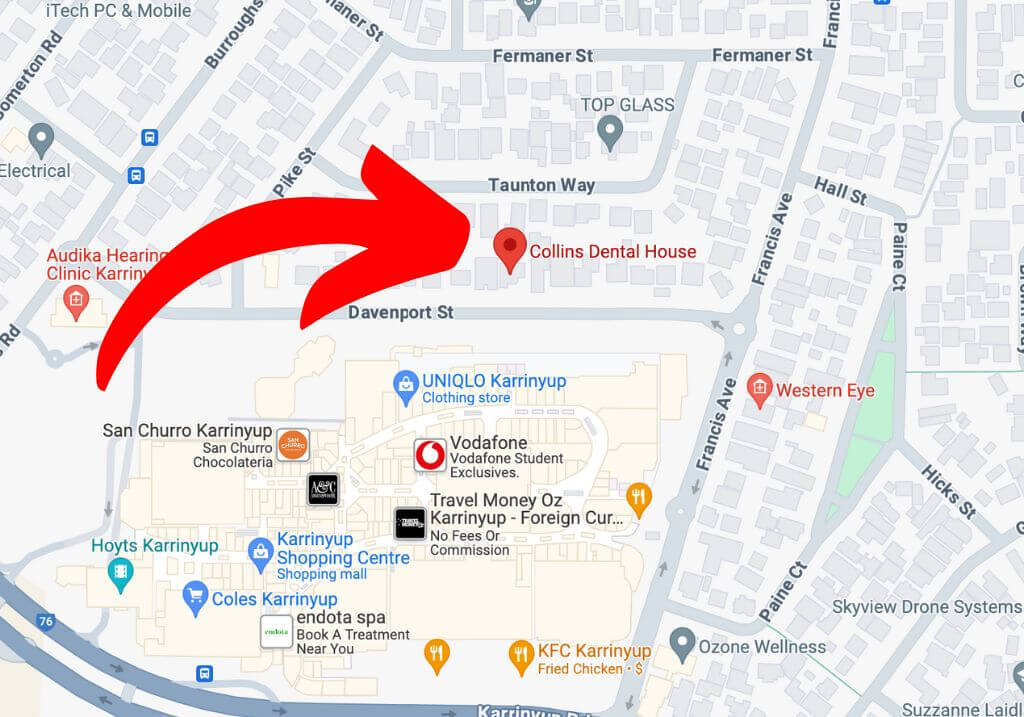It’s understandable that missing teeth can have a negative effect on your self-confidence. It can make you think twice before smiling, not to mention making chewing and eating more difficult. But besides the cosmetic effect that having a missing tooth can have on your appearance, it can also cause further dental problems.
Having gaps in your teeth leaves the possibility of other teeth moving out of position. Your teeth can move out of alignment, resulting in jaw issues, not to mention crooked teeth. Having just one tooth missing can even impact the muscles of your face, causing your face to droop.
But fear not, for there are various solutions to replace a missing tooth, so you can avoid dental issues and you can smile again with confidence.
Dental Implants
A dental implant involves fixing a screw into your jawbone in the gap where you are missing a tooth. This is called an implant and replaces the tooth root and is usually made of titanium. A false tooth is then attached to the screw to replace the missing tooth. The false tooth, called a crown, is usually made from porcelain but can also be made from metal.
Dental implants are usually fitted under local anaesthetic. The process usually takes place through two procedures. The first procedure involves fitting the implant to the jawbone, with the second procedure is to replace the missing tooth with a new tooth onto the implant. The second procedure usually takes place four to eight months later.
Benefits of Dental Implants
- Dental implants are a great option to replace a missing tooth because they are long-lasting. The metal implant lasts forever since it becomes fused to your jawbone. The crown lasts for around 10 to 15 years.
- Implants are discreet and comfortable. They can be made to look exactly the same as your natural teeth, and they are tailored to fit your mouth perfectly. And unlike with dentures, you don’t have to worry about removing implants.
- As well as preventing bone loss in your jaw and restoring your chewing and eating facilities, implants are aesthetically appealing to restore your smile and confidence.
Drawbacks of Dental Implants
- One disadvantage of dental implants is that they are usually more costly than other solutions that replace a missing tooth.
- Additionally, the recovery time involved with dental implants is fairly long, considering that the gum has to heal and the implant has to fuse with the jawbone before the crown is fitted. There is also the risk that the implant doesn’t attach properly to the jawbone, meaning the procedure has to be repeated.
Dental Bridges
An alternative option to replace a missing tooth is a dental bridge. A dental bridge involves bonding a false tooth, also called a pontic, to the natural teeth on each side of the gap. A dental bridge can also be used if you have several teeth next to each other missing.
Usually, the natural teeth on each side of the missing tooth are fitted with crowns, that are made of porcelain or metal. The pontics are attached to the crowns, so to replace the missing tooth. This is known as a traditional bridge.
Similar to a traditional bridge, a cantilever bridge is similar, but the false tooth is only affixed to one supporting tooth next to it.
Sometimes a composite, also known as an adhesive bridge or Maryland bridge, can be used. Here the natural teeth don’t have to be fitted with crowns. In this case, the false tooth has wings to bond to the natural teeth on either side of the gap.
Benefits of Dental Bridges
- Dental bridges can be a great option to replace a missing tooth, as they come in various forms. They are fairly long-lasting, having a lifespan of up to 15 years.
- Another advantage is that, unlike with dental implants, dental bridges can be fitted regardless of the density of your jawbone.
Drawbacks of Dental Bridges
- Generally, the lifespan of dental bridges will be less than that of dental implants. Another drawback is that dental bridges are dependent on the strength and health of the natural teeth on each side of the false tooth.
- Another disadvantage is that if the natural teeth have to be fitted with crowns, this process involves taking the enamel off. This will mean that these teeth will forever have to be crowned thereafter.
Dentures
An alternative solution to replace a missing tooth is dentures. Dentures are fake teeth that can be permanent or removable.
Permanent dentures are fitted to the jawbone using dental implants. Removable dentures, on the other hand, can be taken out and cleaned.
Additionally, dentures can be complete dentures or full dentures, as a replacement for those who no longer have any of their natural teeth. Or they can be partial dentures, for those who have some of their natural teeth left but have gaps.
Benefits of Dentures
- A benefit of dentures is that permanent dentures can last for a lifetime if taken care of. Although removable dentures usually need to be changed every 5 to 10 years.
- Removable dentures can be a great short-term solution to replace a missing tooth if you are still undecided on other solutions like dental implants. And dentures are made to perfectly fit your mouth.
Drawbacks of Dentures
- A potential downside of having dentures is that some people find them difficult to get used to. Some people might find that their dentures move when they eat or just by talking.
- Dentures can also be uncomfortable for some people, and they find it annoying having to take their dentures out to clean them. Furthermore, some people feel their dentures are uncomfortable to wear.
Missing Tooth Replacement Options Conclusion
When you need to replace a missing tooth, you have various options to choose from. Some of the solutions discussed are permanent, while others can be temporary solutions. When deciding which option is best for you, you’ll want to consider the health of your natural teeth and jaw. As well as of course considering the price of the different solutions and contacting your dentist.
If you want to improve your dental health and regain your confidence, replace your missing tooth and bring your smile back.











